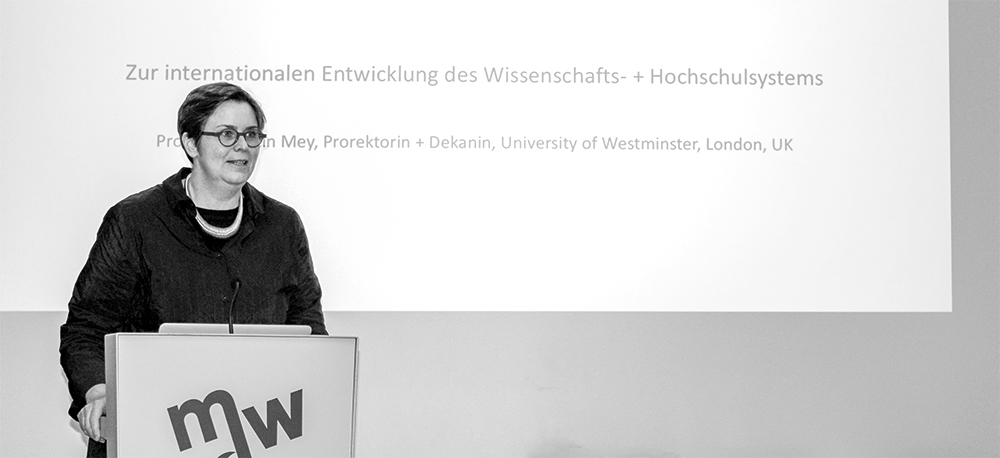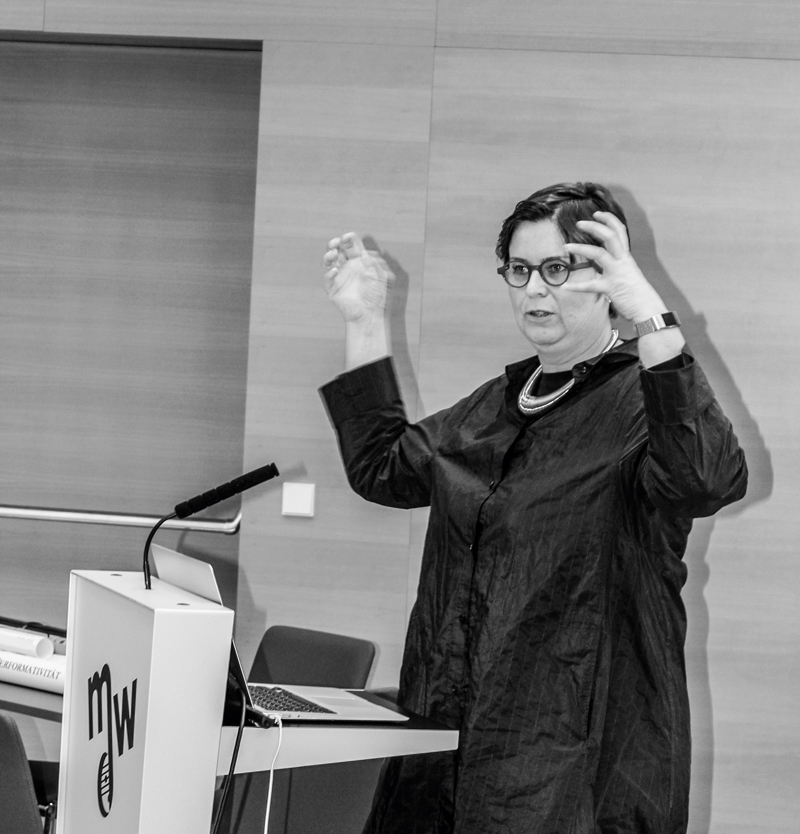On the International Development of the Science and Higher Education System

Our present is subject to a process of profound societal transition. The plundering of natural resources and destruction of the natural environment are converging with the incipient global transformation of established notions of monetary, social, creative, and emotional economies including the access to resources and their distribution. Tensions between local needs and global requirements are visible in phenomena including increasing migration, accelerated production cycles, and rampant urbanisation. Economically motivated processes of globalisation are engendered by digitisation, which encompasses all aspects of life. The concomitant changes challenge conventional models of value and prerogatives of interpretation. Mobile communication and social networks generate new spaces for decision-making and opportunities for action. Digital technologies foster the growing hybridity between real and virtual realities, offline and online spaces, and the public and private spheres; they fuel value creation based on information and knowledge.
All these developments affect the higher education system and the sciences. The number of enrolled students has been growing since the turn of the millennium, and their number will have more than quadrupled to over 414 million in 2030. This trend is accompanied by a diversification of providers: the private sector, business, and online offers. The increased mobility of students and staff (which is often still unilaterally from the “global South” to more “developed” countries and represents part of the increasing market-orientation and competition present in the global higher education system) constitutes an important aspect of higher education’s internationalisation. It requires enhanced efforts to reflect the plurality of existing worldviews and experiences in both teaching content and research perspectives. To sustainably broaden access to higher education and diversify the academic community, adequate higher education-related models and contexts are needed. The growing dominance of the English language in the sciences and in tertiary education supports broader access to knowledge and the broader exchange of ideas, yet it also contributes to a narrowing standardisation of the culture of science. Language competency and multilingualism determine the sophistication in re/presentation and refl ection as well as the qual-
ity of discourse.

In view of rapidly progressing digital transformation, there are increasing demands to accelerate such transformation in the sciences, as well. After all, better access to knowledge is needed in order to drive innovation, while the education of professionals and leaders with advanced digital competences is necessary in order to meet the needs of knowledge societies. It is expected that research will support a deeper understanding of a “culture of the digital” and its eff ects on society, culture, politics, and the economy as well as the individual. However, the digital mindset and/or disciplinary profi ciency and technical skills as well as the didactics of imparting and acquiring these capabilities have to become objects of study.
In order to understand and deal with the complex challenges of societal reality, dynamic forms of trans- and interdisciplinary knowledge production have developed—for instance in the bio-sciences, cyberpsychology, media studies, and gender studies. Computing and data processing shape developments in the sciences, as demonstrated by music informatics and digital architecture as well as by the emergence of the digital humanities and digital sociology. Digital data gathering and linkage as well as comparative analysis expand and deepen opportunities for insights and understanding. Their critical and productive exploitation not only depends on technical and disciplinary prerequisites but also gives rise to complex issues regarding data management, information security, intellectual property, etc. that have to be tackled by individual institutions as well as the science and higher education sectors at large.
Precisely because the worlds of life and work are rapidly changing due to overlapping, multi-layered processes of homogenisation and particularisation, higher education should not split into ever smaller sub-disciplines or adhere to a narrow concept of employability. More than ever, what is required is holistic education that includes both analogue and digital processes and practice as well as a pluralistic notion of science. In an era of machine learning and auto-adaptive systems, the humanities, cultural studies, “sciences of arts”, and the arts themselves play an important role in our thinking about what makes us human, in fostering a critical awareness of values and norms, in envisioning forms of living and sociality, and in promoting a humane future.
Teaching in higher education needs to concentrate on profi ciencies in approaches, methods, and instruments, i.e. on the knowhow. It needs to strengthen the foundations and the motivation for lifelong learning and critical self-reflection. And to remain relevant, teaching methods need to accommodate the diff ering socialisations and expectations of students and staff through strategies such as challenge-based and project oriented approaches, peer and generational learning, and the establishment of open spaces for experiments, irritations, and creative resistance.
This article is based on a lecture by Kerstin Mey at the 2018 “Klausur der Wissenschaften” at the mdw.

